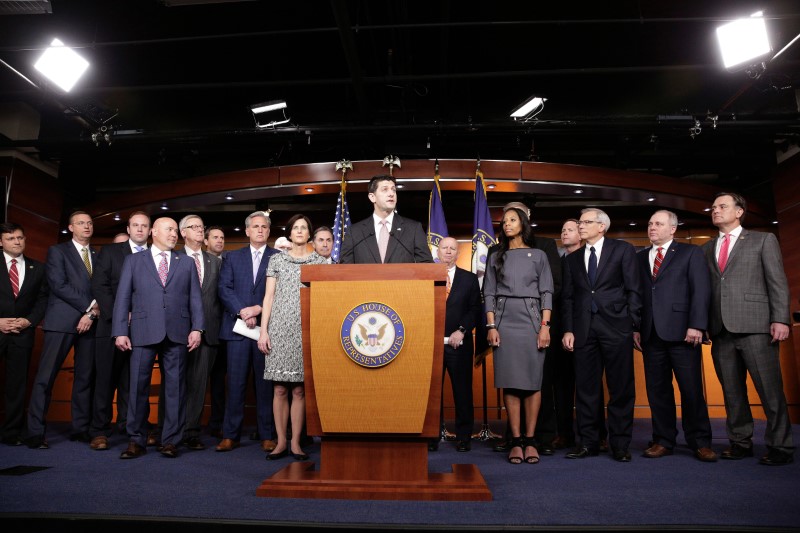By Lisa Lambert
WASHINGTON (Reuters) - Republican lawmakers launched the next round in their fight against federal regulation on Wednesday, helped by at least one Democrat, as the U.S. Senate began work on legislation to change nearly every step agencies take in creating and applying new rules.
Republicans have said they deem lightening federal regulation, which they consider costly and burdensome, as much a priority as overhauling healthcare and rewriting the tax code.
For most of President Donald Trump's first 100 days, the Republican-led Congress attacked regulation by passing resolutions to wipe some of former Democratic President Barack Obama's rules off the books under the Congressional Review Act. Trump also ordered agencies to scrap two existing rules every time they enact a new one.
Just before Trump's January inauguration, the House of Representatives passed the "Regulatory Accountability Act," combining a half dozen bills to radically change government regulation.
On Wednesday, Senator Rob Portman, a Ohio Republican, and Senator Heidi Heitkamp, a North Dakota Democrat, introduced a version of the act for that chamber. If it passes, the bill will be combined with the House version for Trump to sign into law.
The bill would bring "our outdated federal regulatory process into the 21st Century by requiring agencies to use the best scientific and economic data available, strengthening checks and balances, and giving the public a voice in the process," Portman said in a statement.
It requires stricter cost-benefit analysis, use of the "best available science" to craft rules, and reviews of regulations, according to a summary.
The bill diverges from the House version on what is known as the " Chevron (NYSE:CVX) Deference," based on a Supreme Court ruling that courts should defer to agencies' interpretations of statutes governing their rulemaking.
The House legislation eliminates the Chevron Deference, while the Senate one creates a judicial review process where courts can decide if agencies comply with the law and then remand non-compliant rules to agencies. Courts would also review factual determinations used in drafting rules costing more than $1 billion annually.
Environmental and labor groups said the Senate bill could block needed new regulations and weaken existing ones.
"This bill would tilt the scales in favor of polluters at the public’s expense," said Scott Slesinger, legislative director of the Natural Resources Defense Council. "It would make it virtually impossible to safeguard the public from dirty air, unsafe drinking water and other health threats.”
